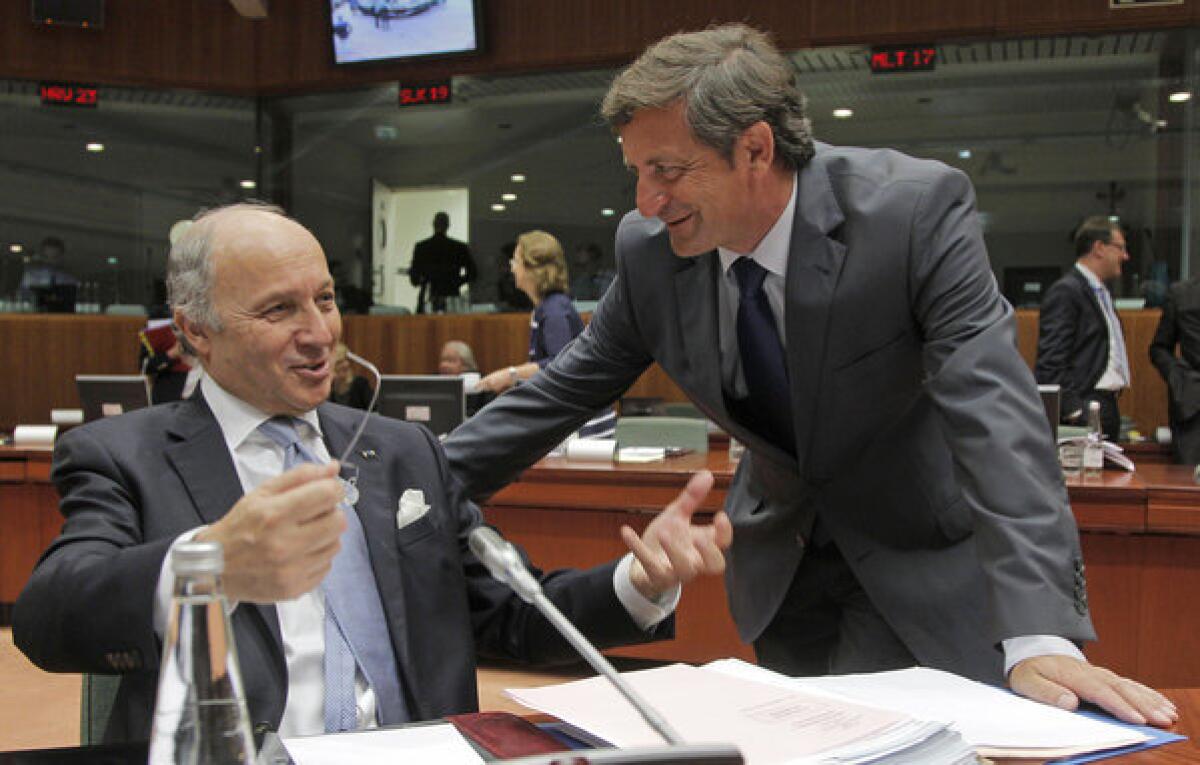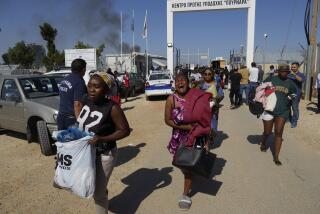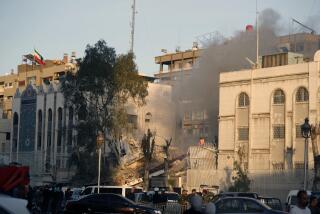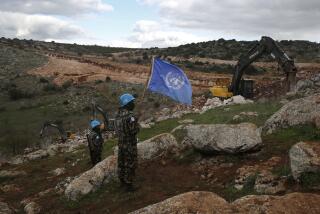EU declares Hezbollah’s military wing a terrorist organization

BEIRUT—The European Union on Monday declared the military wing of Hezbollah a terrorist organization, dealing a political blow to the powerful Lebanese group.
The EU’s 28 members made the decision to put Hezbollah on its terror list at their monthly meeting in Brussels, the Associated Press reported.
“It is good that the EU has decided to call Hezbollah what it is: a terrorist organization,” said Dutch Foreign Minister Frans Timmermans, the Associated Press reported.
There was no immediate official reaction from Hezbollah, a dominant military and political force in Lebanon, where it heads a leading bloc in national politics and participates in the parliament. The Hezbollah-linked al-Manar news agency labeled the decision a capitulation to pressure from Washington, which has long listed Hezbollah as a terrorist organization.
The EU blacklisting implies that members associated with the group’s military wing could be denied visas, and assets associated with Hezbollah could be frozen, AP reported. The move could complicate fundraising efforts for the Lebanese group, which is closely allied with Iran.
The fact that the EU singled out the group’s military wing and did not blacklist its political side was significant, analysts said, since it indicated the EU’s desire to maintain some kind of relations with Hezbollah’s political side. However, untangling who is tied to the group’s military operations and who is strictly political could prove difficult.
Hezbollah’s general secretary, Hassan Nasrallah, is widely seen as the political and military leader of the group, which arose out of the 1982 Israeli invasion of Lebanon. Hezbollah also fought a 34-day war with Israel in 2006.
“We should not forget that Hezbollah is a significant political force in Lebanon, and we must be able to have contacts with the movement regardless of what we think of its activity,” Swedish Foreign Minister Carl Bildt told journalists before Monday’s EU meeting.
One complicating issue is the fact that hundreds of European troops participate in a U.N. peace-keeping force along the “blue line” separating Israeli and Lebanese territory. The U.N. troops are deployed in a sprawling zone of southern Lebanon that is considered Hezbollah’s heartland.
The European decision comes months after Bulgarian authorities accused Hezbollah of complicity in a suicide bombing on a bus last year that killed five Israeli tourists and one Bulgarian in the Black Sea resort of Burgas, drawing international condemnation. Hezbollah has denied any role in the attack.
Hezbollah has also thrown its military weight behind the government of Syrian President Bashar Assad, which is facing a more than two-year insurgency led by mostly Sunni Muslim rebels. The formal entry of Shiite Hezbollah into the conflict in neighboring Syria has enraged many Sunni Muslims in Lebanon and elsewhere. But Hezbollah said the defeat of militants fighting in Syria to overthrow Assad, its longtime ally, was vital to the group’s interests.
ALSO:
Palestinians: Too soon to declare direct peace talks with Israel
6.5 magnitude quake hits off New Zealand coast
Retired general criticizes U.S. response to alleged Iranian plot
Sandels is a special correspondent
More to Read
Start your day right
Sign up for Essential California for news, features and recommendations from the L.A. Times and beyond in your inbox six days a week.
You may occasionally receive promotional content from the Los Angeles Times.






